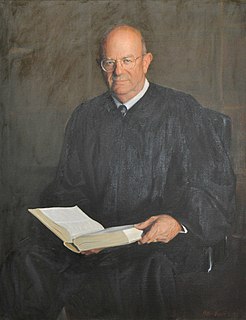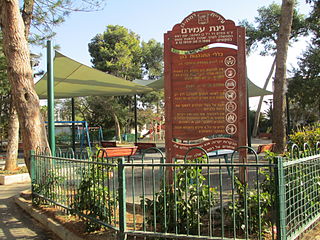This article needs additional citations for verification .(September 2010) (Learn how and when to remove this template message) |
The Special Division is a division of the United States Court of Appeals for the District of Columbia Circuit. 28 U.S.C. § 49 (1982 ed., Supp. V) (Title VI of the Ethics in Government Act). It consists of three circuit court judges or justices appointed by the Chief Justice of the United States. One of the judges must be a judge of the DC Circuit, and no two of the judges may be named to the Special Division from a particular court. The judges are appointed for 2-year terms, with any vacancy being filled only for the remainder of the 2-year period. Its constitutionality was upheld in Morrison v. Olson.

The United States Court of Appeals for the District of Columbia Circuit known informally as the D.C. Circuit, is the federal appellate court for the U.S. District Court for the District of Columbia. Appeals from the D.C. Circuit, as with all U.S. Courts of Appeals, are heard on a discretionary basis by the Supreme Court. It should not be confused with the United States Court of Appeals for the Federal Circuit, which is limited in jurisdiction by subject matter rather than geography, or with the District of Columbia Court of Appeals, which is roughly equivalent to a state supreme court in the District of Columbia, and was established in 1970 to relieve the D.C. Circuit from having to take appeals from the local D.C. trial court.

The Ethics in Government Act of 1978 is a United States federal law that was passed in the wake of the Nixon Watergate scandal and the Saturday Night Massacre. It created mandatory, public disclosure of financial and employment history of public officials and their immediate families. It also created restrictions on lobbying efforts by public officials for a set period after leaving public office. Last, it created the U.S. Office of Independent Counsel, tasked with investigating government officials.

The Chief Justice of the United States is the chief judge of the Supreme Court of the United States, and as such the highest-ranking judge of the federal judiciary. Article II, Section 2, Clause 2 of the Constitution grants plenary power to the President of the United States to nominate, and with the advice and consent of the United States Senate, appoint a chief justice, who serves until they resign, are impeached and convicted, retire, or die.
On December 19, 1986, Lawrence Walsh was appointed Independent Counsel for Iran/Contra Matters by the Special Division. [1]

Lawrence Edward Walsh was an American lawyer, a United States District Judge of the United States District Court for the Southern District of New York and United States Deputy Attorney General who was appointed Independent Counsel in December 1986 to investigate the Iran–Contra affair during the Reagan Administration.

The Iran–Contra affair, also referred to as Irangate, Contragate, the Iran–Contra scandal, or simply Iran-Contra, was a political scandal in the United States that occurred during the second term of the Reagan Administration. Senior administration officials secretly facilitated the sale of arms to Iran, which was the subject of an arms embargo. The administration hoped to use the proceeds of the arms sale to fund the Contras in Nicaragua. Under the Boland Amendment, further funding of the Contras by the government had been prohibited by Congress.








